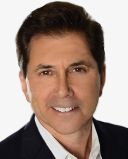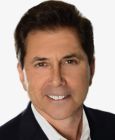
Addiction
When Will We Ever Learn? Addiction and Elder Abuse
The country is facing an epidemic of elder abuse.
Posted September 17, 2011 Reviewed by Abigail Fagan
Next week I was to be at two conferences at the same time speaking on boomer and senior addictions. One was in San Diego and the other was in Pennsylvania. Thankfully, my codependency is not raging too bad these days; hence I realized that I could not be in two places at the same time.
I am telling no one anything new about the pandemic of addictions in our boomers and seniors today. It seems that fact is becoming much known very fast.
Unfortunately, the statement often feels like a cross between "chicken little" and a bit of Paul Revere sprinkled on top. As is the case with so many mental health issues, the sky seems to only fall when it happens in our own family. Maybe I have to accept that notion.
So grandma or grandpa is suffering from a chronic and terminal illness as determined by the AMA and still loved ones, senior residential centers, and even health organizations who want to provide quality care and an affordable price remain behind the eight ball. Assessments and evaluations for depression, addictions, and other mental health challenges are just being rolled out. Medicare is even waking up to the notion of making them mandatory in primary care practices. I work with an organization that is now engaging me to assist in integrating these screening efforts in their primary care clinics and working with their caregivers in dealing with mental health challenges. Hopefully, others will follow suit.
Drug addiction and alcoholism are often seen as a young person's disease. However, the number of boomers and seniors entering drug rehabilitation centers has nearly doubled in the last 10 years. Drinking is still the most popular drug of choice but prescription drug abuse is beginning to be a close second. OK, you may have heard that already, but what if I told you that the byproduct of this tidal wave of addiction is the corresponding social issue of elder abuse?
There are nearly 6 million cases of elder abuse every year. That's approximately one case every five seconds. Unfortunately, many of these cases will go unreported. According to EADaily.com's projections, California remains the state with the greatest number of abuse cases in the U.S., with 36% more than that of Florida, the state with the second greatest number of elder abuse cases.
Here are some sad statistics:
- Every five seconds, an elderly person is abused.
- California accounts for 10.6% of all elder abuse cases in the U.S.
- Alaska has the fewest number of cases in the U.S. at approximately 8,900 cases per year.
- Just five states account for over one-third of all elder abuse cases in the U.S.
- California, Florida, New York, Texas and Pennsylvania have the most cases of elder abuse annually.
"Every year an estimated 2.1 million older Americans are victims of physical, psychological, or other forms of abuse and neglect. For every case of elder abuse and neglect reported to authorities, experts estimate that there may be as many as five cases not reported.
Research suggests elders who have been abused tend to die earlier than those who are not abused, even in the absence of chronic conditions or life threatening disease." Neglect, emotional and financial abuse heads the list of transgressions with the elderly.
The connection to boomer and senior addiction is undeniable, and if there is no other reason for society to sit and smell the coffee around senior alcoholism and drug abuse, then allow for the elder abuse issue to open the door widely.
Of course we can assume that addiction costs our healthcare system billions in the way it affects our medical worlds. There is no way to separate addictions from our hearts, lungs, livers and endocrine systems or the rising costs of admissions and readmissions to hospitals. That is a no brainer.
Let's talk about abuse for a moment and how the boomer and senior caregivers are susceptible to being the unlikely perpetrators of elder abuse.
Substance abuse has been identified as the most frequently cited risk factor associated with elder abuse and neglect. It may be the victim and/or the perpetrator who has the substance abuse problem. Substance abuse is believed to be a factor in all types of elder abuse, including physical mistreatment, emotional abuse, financial exploitation, and neglect. It is also a significant factor in self-neglect.
At www.preventederabuse.com, the case is stated clearly: "Researchers and practitioners have observed the following patterns with respect to perpetrators of elder abuse who abuse drugs or alcohol:
- Persons with alcohol or substance abuse problems may view older family members, acquaintances, or strangers as easy targets for financial exploitation. The perpetrator may be seeking money to support a drug habit or because they are unable to hold a job and have no source of income.
- Perpetrators may move into an older person's home and use it as a base of operation for drug use or trafficking.
- The research on domestic violence shows that abusive partners are more likely to be violent while they're under the influence of drugs or alcohol. The relationship between domestic violence and substance abuse, however, is not fully understood. Although it has been assumed that alcohol and drugs reduce users' inhibitions, it has also been observed that perpetrators of domestic violence use drugs and alcohol to rationalize their behavior.
- Caregivers who are having difficulty coping with the demands of providing care may use drugs as a misguided coping mechanism.
For those caregivers who understand that "the sky is not falling" and are recovering from alcohol and drug abuse, Caregivers in Recovery can be a helpful resource. Relapse often occurs when a recovering person puts the care of their loved one ahead of their own health. This resource might remind you that sobriety is always first.
As we begin navigating this "new world order" around healthcare, from ACO's to a nation going broke, we need to bring the mind and body closer together if we ever are going to see the light in this country. Right now, it feels like the lights are going out. We need to be hyper-vigilant and support all efforts nationwide to make behavioral health equal to medical health, from primary care clinics to assisted living and skilled nursing residential options. We need to follow the example of Congress last year, which passed legislation to create parity for mental health everywhere, especially in the insurance industry
Caregivers are looking at difficult times in their families with a cultural backdrop of difficult times happening simultaneously in America. Boomer and senior addictions are creating more and more elder abuse and costing this country billions of dollars as well.
Become part of the solution on this issue or we will forever remain part of the problem. One place to start is Caron, which addressing boomer and senor addiction treatment.
To find a treatment center or a therapist, visit the Psychology Today Therapy Directory.



